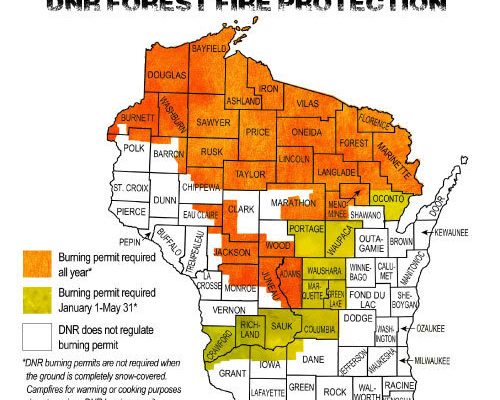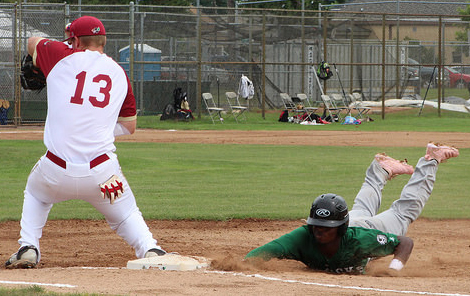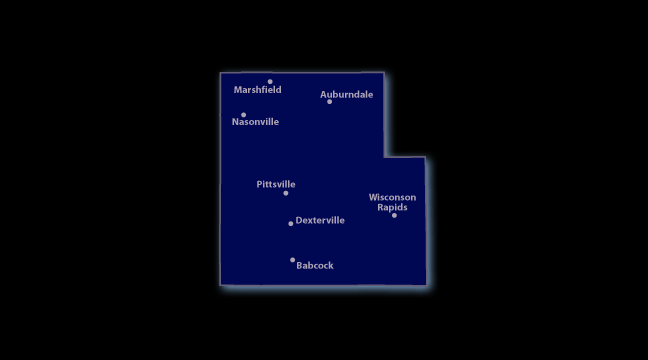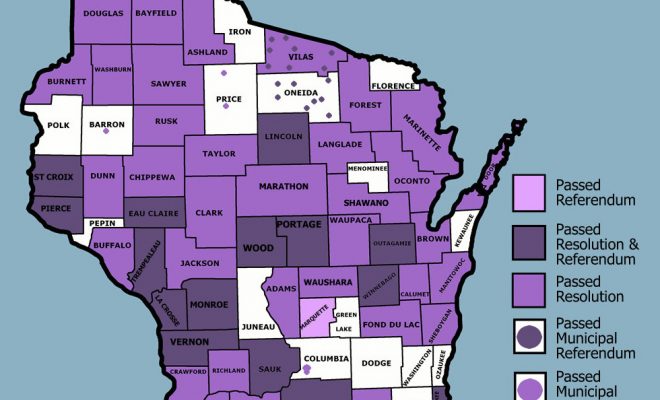Wildfire season is underway in Wisconsin

For the City Times
MADISON – With Wisconsin wildfire season underway, the DNR reminds Wisconsinites to be fire smart this spring and get their free annual burning permit. Unlike out west, the spring is the most dangerous time for wildfires in Wisconsin. After the snow melts and before plants, trees and grass turn green, fires can spread quickly.
“Weather is the single most important factor influencing how fires start and spread,” said Ron Weber, DNR forester, adding seasonal warm and dry weather conditions increase wildfire activity. “Temperature, wind, humidity and precipitation are the key weather components that determine the daily fire danger.”
Fire danger is high across much of the state including the following counties: Adams, Ashland, Barron, Bayfield, Brown, Buffalo, Burnett, Calumet, Chippewa, Clark, Door, Douglas, Dunn, Eau Claire, Fond du Lac, Green Lake, Iron, Jackson, Juneau, Kewaunee, La Crosse, Lincoln, Manitowoc, Marathon, Marquette, Monroe, Oneida, Outagamie, Pepin, Pierce, Polk, Portage, Price, Rusk, Sawyer, Sheboygan, St. Croix, Taylor, Trempealeau, Washburn, Waupaca, Waushara, Winnebago, and Wood counties.
The DNR requires burning permits in many parts of the state to conduct legal and responsible burning outdoors. Burning permits are free and easy to obtain and protect lives, property and natural resources from the damages of wildfires.
Debris burning is the leading cause of Wisconsin’s wildfires. Fires caused by careless burning become more frequent this time of year. The 2021 fire season follows a winter with below-normal snow depths. Fire control officials are focusing on the potential for statewide fire activity as the snow is rapidly melting at the same time.
Wildfires can happen just about any time of the year, but historically, 60 percent of all annual wildfires in Wisconsin occur in March, April and May alone.
“Many people are eager to get outside to clean-up their properties by raking leaf litter, brush and needles, so it looks good and is ready for new growth,” Weber said. “Then, they choose to burn their debris pile. Consider composting yard waste or hauling it to an approved disposal site. Burning debris should always be the last alternative.”
More information on burning permits, fire danger, and preparing for wildfires around your home and property is available on https://dnr.wi.gov/topic/ForestFire/restrictions.asp.






